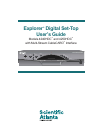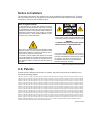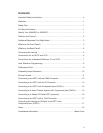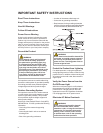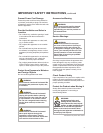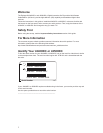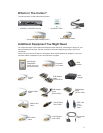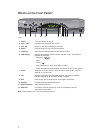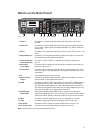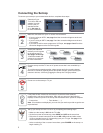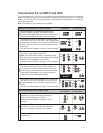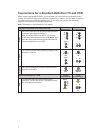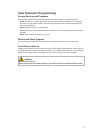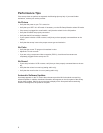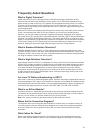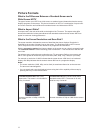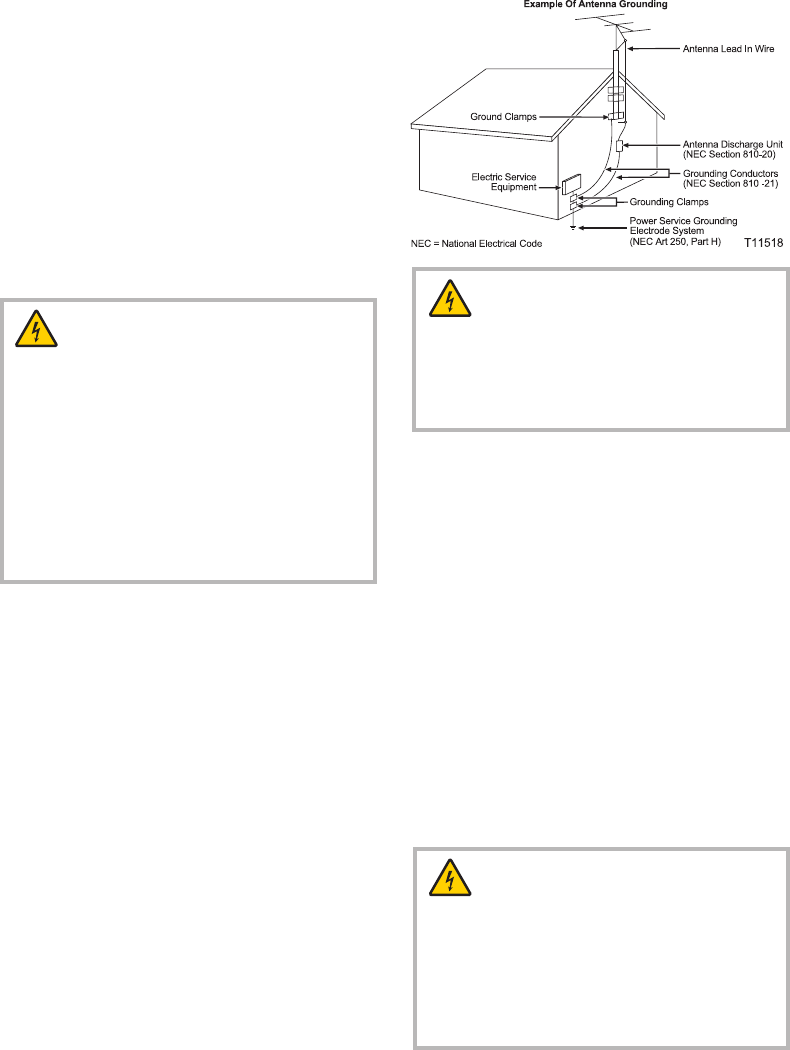
iv
• Location of the antenna-discharge unit
• Connection to grounding electrodes
• Requirements for the grounding electrodes
(see the following antenna grounding diagram
as recommended by NEC ANSI/NFPA 70)
WARNING:
Avoid electric shock and Þ re hazard! Do
not locate an outside antenna system in
the vicinity of overhead power lines or
power circuits. Touching power lines or
circuits might be fatal.
Protect the Product from Lightning
For added protection, unplug this apparatus
during lightning storms or when unused for long
periods of time. In addition to disconnecting the
AC power from the wall outlet, disconnect the
signal inputs.
Verify the Power Source from the
On/Off Power Light
When the on/off power light is not illuminated,
the apparatus may still be connected to the
power source. The light goes out when the
apparatus is turned off, regardless of whether
it is still plugged into an AC power source.
Eliminate AC Mains Overloads
WARNING:
Avoid electric shock and Þ re hazard!
Do not overload AC mains, outlets,
extension cords, or integral convenience
receptacles. For products that require
battery power or other power sources
to operate them, refer to the operating
instructions for those products.
Read These Instructions
Keep These Instructions
Heed All Warnings
Follow All Instructions
Power Source Warning
A label on this product indicates the correct
power source for this product. Operate this
product only from an electrical outlet with the
voltage and frequency indicated on the product
label. If you are uncertain of the type of power
supply to your home or business, consult your
service provider or your local power company.
Ground the Product
WARNING:
Avoid electric shock and Þ re hazard!
Do not defeat the safety purpose of
the polarized or grounding-type plug.
A polarized plug has two blades with
one wider than the other. A grounding-
type plug has two blades and a third
grounding prong. The wide blade or the
third prong is provided for your safety.
If the provided plug does not Þ t into
your outlet, consult an electrician for
replacement of the obsolete outlet.
If this product connects to coaxial cable wiring,
be sure the cable system is grounded (earthed).
Grounding provides some protection against
voltage surges and built-up static charges.
Outdoor Grounding System
If this product connects to an outdoor antenna
or cable system, be sure the antenna or cable
system is grounded (earthed). This provides
some protection against voltage surges and
built-up static charges.
Article 810 of the National Electric Code (NEC)
ANSI/NFPA No. 70-1990, provides the following
information:
• Grounding of the mast and supporting
structure
• Grounding the lead-in wire to an antenna
discharge unit
• Size of the grounding conductors
IMPORTANT SAFETY INSTRUCTIONS



